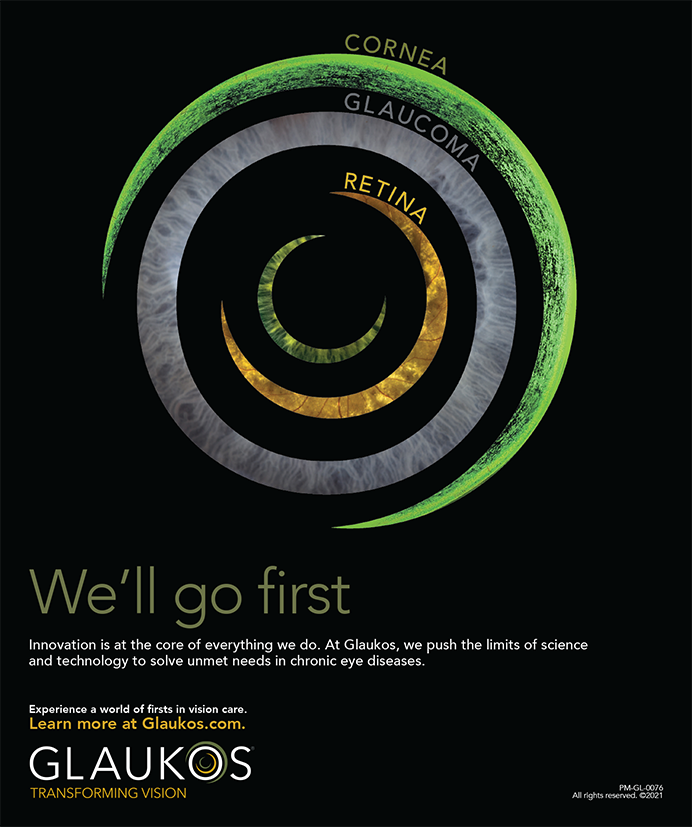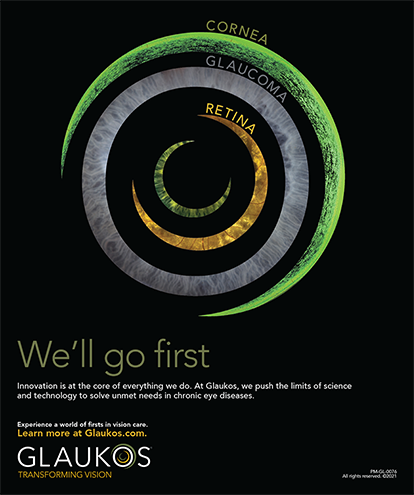What do you miss about ophthalmology now that you are no longer practicing?
I love ophthalmology and feel very lucky to have been a part of this subspecialty. Vision is our most precious sense, and my job of preserving or improving it was always something my patients appreciated immensely. The feedback I received from patients was similar to the applause a musician gets when he or she finishes a performance. It is what kept me going, and that is what I miss the most now that I have discontinued seeing patients clinically and surgically.
Of which of your contributions to the field are you the most proud?
When I was a second-year resident in ophthalmology in the late 1970s, I invented the Brightness Acuity Test (BAT). Before then, patients’ vision would be tested in a dark room while they looked at black letters on a white background. They would be determined to have good vision, but as soon as they walked outside, their pupils would constrict. If these patients had a central posterior subcapsular or nuclear sclerotic cataract, they could not see around it; they were virtually blind. Patients who did not meet the requirements of having a visual acuity worse than 20/40 when they were tested in a dark room could not qualify for cataract surgery.
One day during my residency while I was working in the low vision clinic, I was looking through an illuminated stand magnifier, and the lens fell out. I held up the magnifier without the lens and looked through it at the eye chart, and I could read it. I handed it to my professor, and he could not read the letters. He was 75, and I was about 30 years of age. I realized then that I had just done a glare test, and that is how I invented the BAT. I refined it over time. The BAT has probably affected more people than I ever anticipated, because it has allowed millions of people— who would not otherwise have been able—to undergo cataract surgery.
What was the biggest surprise of your career?
In 1974, when I was a first-year ophthalmology resident, practicing ophthalmologists were performing intracapsular cataract extraction and then prescribing aphakic eyeglasses or contact lenses. It was unbelievable to see the evolution of IOLs from the late 1970s through the 1980s, when they became commonplace. Before then, most ophthalmologists never believed we would be able to insert a piece of plastic in the eye that would restore vision and eliminate the problems associated with contact lenses or aphakic eyeglasses.
What was your most memorable international experience?
In 2001, The Royal College of Surgeons in the United Kingdom arranged to present me with the John Pearse Medal. The meeting was scheduled for September 13, which was 2 days after the September 11th attacks. Of course, all of the flights in the United States were cancelled, and there was no way for anyone to fly out of the country. Officials began to let some planes depart on the 13th, and my wife and I were able to catch a nonstop flight from Houston to London; we were the only passengers on the plane. When I arrived, the fire department had set up a fund for victims, and every time someone found out that we were from the United States, he or she showed an overwhelming amount of concern. It was an extremely heartwarming experience during a very tense period of time.
What is your typical day like since retirement?
I spend my time consulting and answering queries from practicing ophthalmologists about managing patients. My creative time is from 8:00 AM until noon daily, when my “creative juices” are at their best. In the afternoons, I review articles, check my e-mail, play golf, and do the household chores my wife has given to me. Both our son and daughter live very close by, so we spend a lot of time with them in the evenings and on weekends. When it is not over 100ºF, the family plays golf together on Sunday mornings.


